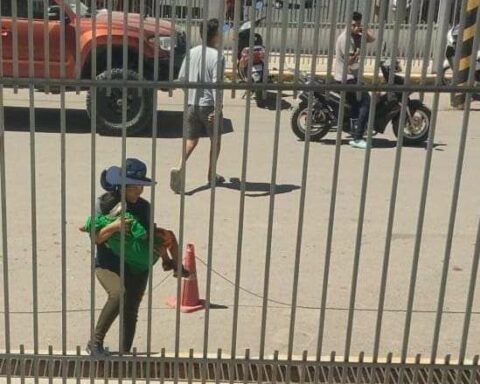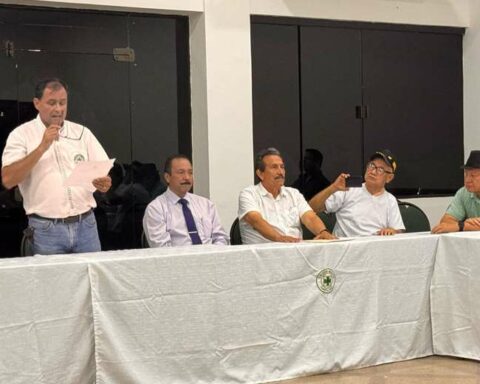In the south of the Madidi National Park, in the municipality of Apolo in the department of La Paz, community members and illegal miners shoot each other, burn houses, kidnappings take place and the State makes its complete absence shine there.
On Tuesday of this week there was a confrontation that left eight gunshot wounded at the scene; 20 houses were burned and two people were kidnapped, because dozens of illegal mining companies operate in that area that come to exploit gold and establish themselves as powerful armed groups that go over local authorities, sow violence and there is no authority to stop them. .
They establish something like small states within the Bolivian state and no one but them rules them.
In the country there is a Mining Administrative Jurisdictional Authority (AJAM), responsible, as its name indicates, for regulating and controlling mining activity in the country, but its presence in remote places such as Apolo is null; It does not directly exist and does not even carry out sporadic inspections in the area.
The mining companies that settle there are illegal, work clandestinely, destroy the balance of the ecosystems of national parks, such as Madidi, and in many cases involve nearby communities in alliances that they later use for their defense.
There are also state institutions such as the National Service for Protected Areas (Sernap), the Ministry of Mining and the Ministry of Government that also disregard the chain of illegalities that accompanies the illegal extractive activity in that region.
The deputy governor of the Franz Tamayo province, Genoveva Espinoza, denounced in statements to EL DEBER that illegal companies hide behind communities by forming unrecognized cooperatives and that she cannot carry out her inspection work because when she has tried to do so she has suffered threats and intimidation by leaders allied with illegality.
He even denounced that since last February he reported the transfer of heavy machinery for mining purposes in the community of Azariamas and the Tuichi River. A month later, community members from a nearby town called Chushura also denounced that they were attacked by interculturalists dedicated to illegal mining, who were armed and shot several local peasants.
In none of these complaints was there any response from the national authorities cited.
Legislator Cecilia Requena assures that even to her as a State Senator, AJAM does not provide accessible and georeferenced public information and that many people began to do unauthorized mining only with reserves of land grids before AJAM finished the endowment process. of mining rights, and they do it because they know that the Mining Authority does not control.
Moreover, on one occasion the former head of the AJAM, Brenda Lafuente, appeared before the Commission on Land and Territory, Natural Resources and the Environment of the Legislative Assembly, and there she admitted that her office had only nine police officers to carry out the inspections. and revealed his impediment to control illegal mining due to the danger and the firearms used by the miners in places like Azariamas.
And as is already the norm in the reverse country, in the case of Apolo, the leaders who denounced the presence of illegal mining companies are under house arrest due to the action of intercultural miners who allied themselves with some leaders of peasant organizations, united under the strategy to ask for land to mine with local communities.








